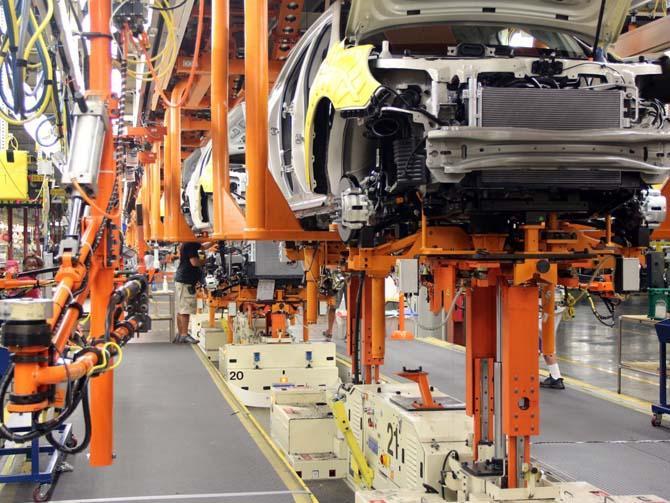The city of Minneapolis is making headlines as it increases efforts to create domestic goods in America, which is a much-needed improvement in American production to combat unemployment rates.
Airtex Design Group, the owner of a particular Minneapolis sewing mill, is supplying people with jobs who would otherwise be out of work or struggling to make ends meet.
These efforts can be related back to Lacassine, La. where a cotton-spinning mill opened in 2009. Zagis USA, originally based in South America and Mexico, extended its efforts here to help create jobs and, let’s face it, get cheaper cotton.
Zagis created 160 factory jobs by 2012 and estimated 645 indirect jobs in Louisiana.
While that’s awesome, butit happened in 2009. Little progress has been made in the state since then to supply people with more factory jobs. Other states are jumping on the opportunity to welcome big businesses onto their production lines.
Louisiana unemployment rates were at 7 percent in August — better than Mississippi’s upsetting 8.5 percent, but there’s still room for improvement.
We aren’t last at something, which sounds nice in theory, but a main component of decreasing unemployment rates is finding people willing to work. With our economy, you’d be surprised to see how many people still refuse to work in a mill.
Airtex gives its workers between $9 and $16 an hour, plus another 30 percent of Airtex benefits. But if this trade increases, will wages and health provisions decrease like we have seen happen in our nation’s past?
This could be what is holding back the majority of Americans to support an increase in factory jobs. Not that we have much room for negotiation. Jobs are jobs — and right now we should take what we can get.
The main issue is stamina — we need people willing to work in factories. If someone is unemployed, they should utilize the efforts of our government and get off their sunken-in couches.
Americans have clung to the idea that the U.S. is still a world power. We can do what we want, when we want, because we are the best at everything. This arrogance, unfortunately, translates to our everyday citizen.
Yes, we do provide the American dream to our people, but U.S. citizens need to give back to the economy that offers them these ideals. Last time I checked, the American dream required just a little bit of hard work before reaping its benefits.
Debra Kerrigan, a dean at Dunwoody overseeing the Minnesota program, thinks that the mentality behind factory jobs is what frightens away workers.
“I think it’s just the idea of, ‘Oh, I’m a sewer,’ that doesn’t thrill the average young individual today,” she said.
It’s been quite a while since the dark days of the industrial revolution and the health concerns that came with it. We need to stop being so picky.
Besides, most modern facilities in the U.S. are up to date, which is more than we can say about some overseas factories.
The fact is Americans want more American products. After seeing products with a “made in America” sticker glued to the bottom, a spark of pride ignites in the pit of our wallets. Businesses are trying to comply, but it’s a two way street America.
Places like Minneapolis are starting trade programs to promote specialization to make it easier for people to get jobs in factories. This is the direction we need to go down south.
It seems like a backward idea, taking a trip back to when cotton mills and textile factories flourished in our backyard, but isn’t backwards what Louisiana is all about?
The more comfortable people get with the idea of factory jobs, the less unemployment we will see in our future. Jobs like this can help push America out of its economic rut.
Annette Sommers is a 18-year-old mass communication sophomore from Dublin, Calif.
Opinion: U.S. factories can help fight unemployment
September 30, 2013
In this Aug. 1, 2013 photo provided by General Motors, cars are assembled at the General Motors Spring Hill Manufacturing Plant in Spring Hill, Tenn. General Motors announced Tuesday, Aug. 6, 2013, that it is spending another $167 million at the factory so it can build two new midsize vehicles. (AP Photo/General Motors) (Credit: AP)





